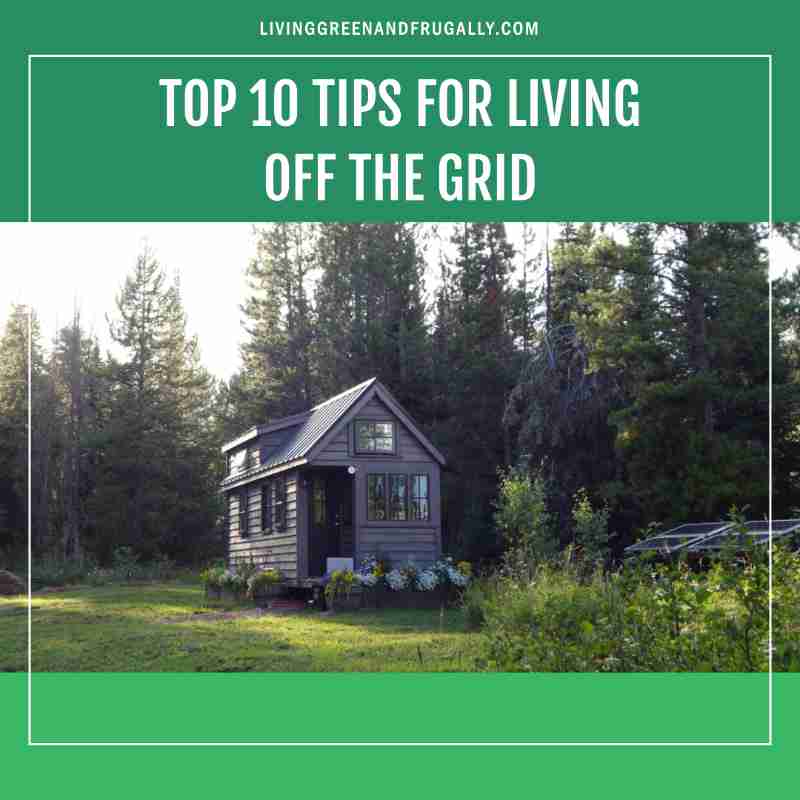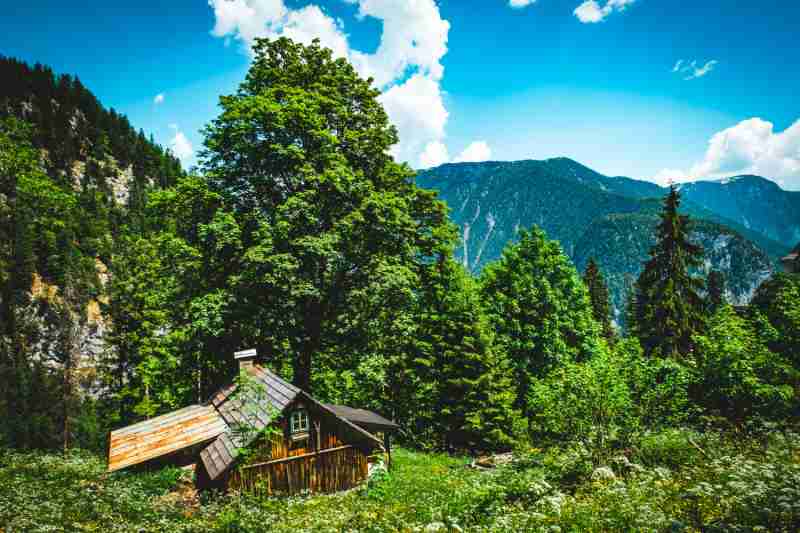Top 10 Tips for Living Off The Grid

Make sure to like Living Green and Frugally on Facebook, Shop at Amazon to help support my site and explore our PINTEREST BOARDS for innovative ways you can become self-sufficient.
In an era dominated by modern conveniences and technological advancements, there exists a growing movement of individuals seeking an alternative way of life: living off the grid. This lifestyle choice involves disconnecting from public utilities and embracing self-sufficiency by generating your own power, growing your own food, and reducing reliance on external resources. But what does living off the grid entail, and why are more people opting for this unconventional lifestyle?
What Does Living Off the Grid Mean?
Living off the grid essentially means cutting ties with municipal utilities like electricity, water, and gas, choosing instead to create and utilize your own sustainable resources. It’s about fostering independence by generating power through solar panels or wind turbines, collecting rainwater for consumption, and implementing eco-friendly methods for everyday living.
Why Do People Choose Off-Grid Living?
The reasons for embracing an off-grid lifestyle are as diverse as the individuals who choose it. Some seek to reduce their carbon footprint and live more sustainably, while others desire greater autonomy and freedom from societal norms. For many, it’s a conscious decision to live closer to nature, away from the hustle and bustle of urban life. Financial independence, increased self-reliance, and a desire for greater resilience in the face of uncertain times also motivate individuals and families to adopt off-grid living.
Things You Need to Know Before Going Off-Grid
Before venturing into off-grid living, it’s essential to understand the challenges and necessities:
- Research and Planning: Thoroughly research the practicalities of off-grid living, including legal considerations, land requirements, and acquiring necessary skills.
- Resource Management: Understanding how to manage resources like water, energy, and waste is crucial. Implementing conservation practices is key.
- Financial Preparedness: Initial setup costs can be significant. Budgeting for equipment, land, and ongoing maintenance is essential.
- Building Codes and Regulations: Familiarize yourself with local regulations regarding off-grid living and alternative building methods.

Top 10 Tips for Living Off the Grid
1. Start Small, Learn Big:
Begin by identifying one aspect of off-grid living to focus on initially. For instance, start with setting up a rainwater collection system or installing a small solar panel array to power specific appliances. This approach allows you to learn the intricacies of off-grid systems without becoming overwhelmed. Gradually expand your self-sufficiency efforts based on your learning experiences.
2. Prioritize Basic Needs:
Ensure reliable access to clean water, as it is fundamental to survival. Install a filtration system for collected rainwater or a well if feasible. For food, prioritize growing high-yield, low-maintenance crops suited to your climate. Consider raised bed gardening, vertical gardening, or greenhouse cultivation to optimize space and output.
3. Invest in Renewable Energy:
Explore renewable energy sources such as solar panels, wind turbines, or micro-hydro systems. Solar panels, in particular, can provide consistent energy when placed strategically. Understand your energy needs and invest in a reliable system that meets those needs while allowing for potential growth.
4. Water Conservation:
Implement rainwater harvesting by setting up gutters and storage tanks. Use collected rainwater for non-potable purposes like irrigation, washing, or flushing toilets. Employ greywater recycling systems, directing water from sinks and showers to be reused in gardens or for flushing toilets after filtration.
5. Grow Your Own Food:
Start small with a variety of vegetables suited to your climate. Employ permaculture principles, companion planting, and organic gardening techniques to increase yield and sustainability. Consider incorporating fruit trees, herbs, and edible perennials to diversify your food sources.
6. Develop Essential Skills:
Acquire skills that support self-sufficiency such as basic carpentry for repairs, gardening, food preservation, and first aid. Understand how to maintain off-grid systems like solar panels or water filtration units. Continuous learning and practice will enhance your ability to thrive off the grid.
7. Build a Supportive Community:
Connect with like-minded individuals through local groups, online forums, or workshops. Collaborate on shared projects, exchange knowledge, and pool resources for mutual benefit. Community support can offer invaluable advice, assistance, and a sense of belonging.
8. Prepare for Emergencies:
Maintain an emergency kit stocked with essential supplies like non-perishable food, water purification tablets, medical supplies, and tools. Create contingency plans for power outages, extreme weather events, or other unforeseen circumstances to ensure you’re prepared for any situation.
9. Embrace Minimalism:
Adopting a minimalist lifestyle reduces reliance on unnecessary items and fosters efficient resource use. Prioritize multi-functional tools, reusability, and sustainable products to minimize waste generation. Regularly assess possessions and habits to streamline and simplify life off the grid.
10. Stay Adaptable:
Flexibility is crucial in off-grid living. Be open to adjusting your strategies based on changing circumstances or new information. Experiment with different methods, technologies, and approaches to find what works best for your specific situation and environment.
Implementing these tips requires dedication, patience, and a willingness to learn from both successes and failures. By gradually incorporating these practices into your off-grid lifestyle, you can pave the way for a sustainable, self-sufficient, and fulfilling existence off the grid.
Final Thoughts
Living off the grid isn’t merely a lifestyle choice; it’s a journey toward self-sustainability and conscious living. It requires dedication, resilience, and a deep appreciation for nature. While it may not be for everyone, for those seeking a more independent and environmentally conscious existence, off-grid living can offer a fulfilling and rewarding way of life. Before taking the leap, thorough research, preparation, and a willingness to embrace change are key to a successful off-grid experience.